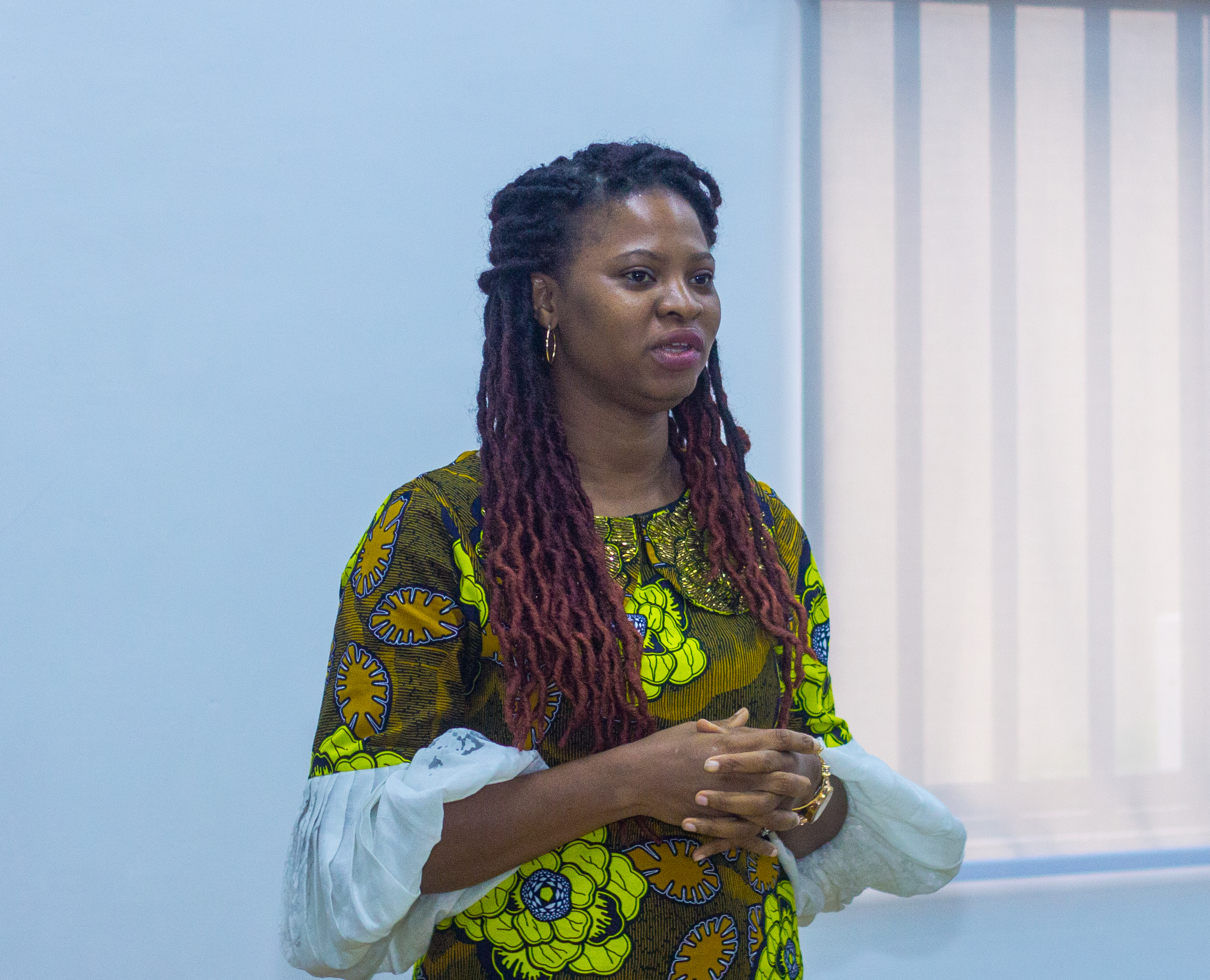In a lot of ways, the COVID-19 pandemic has thrust forward the importance of online and digital payments and brought to more public familiarity technology payment facilitating companies. Flutterwave, one of the leaders in the payment technology space in Africa, helps provide banks and businesses with seamless and secure payment experiences for their customers “We’ve made it easier for Africans to build global companies that can make and accept any payment, anywhere from across Africa and around the world. The world’s digital economy is progressing around us, and we want to include African businesses in the journey,” is one of the many ways it describes itself. In less than five years of existence, the company, founded by a team of ex-bankers, entrepreneurs, and engineers, has carved a niche for itself in Africa’s fast rising fintech sector. The company’s executives fielded questions from Business A.M.’s SAVIOUR ADUGBA on the Fintech state of play in a time of COVID-19, and how Flutterwave has navigated itself during this time. Enjoy the read:

We provide technology infrastructure that connects niche payment structures for efficiency, security, speed, affordability
Digital payment is a core part of the drive for a digital economy in Nigeria and indeed Africa; what is the role of Flutterwave in that drive?
Our role is to provide the most modern technology to enable and improve intra and cross-border payments in the continent and beyond. The payments landscape in Africa is highly diverse and fragmented, but the good thing is that they all work. The online payment method of choice in Ghana may not be the same for Kenya. There has to be a connection for all of this to facilitate cross-border payments. At the end of the day, someone in Ghana should be able to seamlessly make payments to a business in Kenya and even Asia and all other emerging markets. That is the problem we are solving for the continent. And we work towards this by providing a technology infrastructure that connects all of these niche payment structures for efficiency, security, speed and affordability.
It has been shown that many Nigerians are afraid of online payments. As a company that powers online payments for many businesses, how have you helped allay these fears?
We build trust across the board. In Africa and other emerging markets, one of the key hindrances to digital payments is trust. Africans in general and Nigerians in particular see digital payments as this unrelatable sphere where many alien things happen. We are innovating around trust by being as relatable as possible. We show people that everyday people like them can go digital, safely and successfully via our many channels and activities like Grow My Business Webinar and other marketing campaigns. We have also built and continue to improve our very dependable and reliable technological infrastructure. One thing is to be trustworthy and secure. Another is to be able to communicate this to the people; and we are aware of this and putting in the required effort. The best way to grow trust is through reliability, relatability and education. We do this through our marketing efforts.
With the advent of the COVID-19 pandemic, many Nigerians were forced to stay at home. According to reports, this led to a growth in digital payments. From your experience as a digital payment company, how true is that assertion? And how has the ease of restrictions affected that trend?
The COVID-19 pandemic came with its own realities. As some industries like hospitality and travel locked down, others boomed. Some of the industries that shut down are key players in the digital payment ecosystem. But the easing of the lockdown means that people who have gone digital with their payment needs, will remain online as others who were previously online (e.g. hospitality and travel), recover. Other businesses that were never online but adversely affected by the pandemic will work hard to cushion the shock of a future incidence like this. This can only mean a marked growth in digital payment across the continent.
Specifically, how has the COVID-19 pandemic affected Flutterwave as a company? Have you experienced growth in terms of transaction volumes and values?
The pandemic and lockdown affected every business in a way. For some, it was disappointing. For others, it was a blessing. For us, it was both, because a lot of our enterprise partners shut down and are presently trying to pick up from where they were, pre-pandemic. On the other hand, we gained some new customers who saw our services as the only way of surviving the lockdown. Consumer behaviour has also changed due to the pandemic and more people are now more interested in contactless delivery for their previous habits such as eating/social life, which in turn has boosted e-commerce offering and digital payments. But as earlier stated, some key sectors were hit hard while others thrived. We are happy to keep helping businesses grow and keep the lights on.

Many people have referred to some of the effects of the pandemic as the “new normal”. What are your thoughts about this in relation to the digital payment sector?
The significant shift to remote work, online shopping and digital payments are all effects of the pandemic. We prefer to look at the situation from the perspective of where we are coming from and where we are going. We are coming from a society where cash is a dominant means of payment. The pandemic may have significantly changed consumer behaviour but there is still more work to do. The new normal is still the pre-pandemic world with a little change in consumer behaviour favouring online payments. A significant shift from cash to digital payments is a gradual process and soon, we will get there.

What is the place of online payments in the drive for financial inclusion?
Financial inclusion is both a social and economic goal for stakeholders. It is a goal requiring multi-level collaboration to achieve. Fintech is just one of the many stakeholders involved in reaching this goal and online payment is one plausible road to this destination. We have to continue to innovate to be more diverse in the products we put out. There are ways of ensuring the unbanked move money online too. Safaricom is doing something very worthwhile with M-Pesa in Kenya, and the impact in the past few years shows us people do not need bank accounts to use their services.
How has online payment grown over the past few years?
The growth of online payment in Africa has been steady, even before the pandemic. However, the pandemic fastened a lot of the processes and forced people to adapt to new behaviours like making more digital payments and ordering products online. As life gradually goes back to ‘normal’, people will most likely stick to these learned behaviours. This means only one thing, continuous growth in the adoption of online payments.
Q: What are your projections in terms of adoption of online payments in Nigeria in the future?
Online payments will continue to grow in Nigeria. However, at the moment, cash is still king. As we continue to put in the required work, more people will adopt digital payments for their businesses and customers will be more willing to make their transactions online. The pandemic increased the chances of Nigeria getting to this destination faster than ever. But the digital payments and fintech ecosystem need to put in more work to realise this.
Q: In your experience, how comfortable are Nigerian businesses in terms of integrating online payment into their strategy?
Before the pandemic, Nigerian businesses on the average were already interested in integrating online payments into their business strategy, but the pandemic acted like a catalyst. For many businesses, online payments were not at the top of their priority list, but the pandemic made it the only option. It is an on-going process and more people are discovering the endless possibilities involved in being a part of the digital payments community. Consumers have also had a significant change in behaviour with more people being comfortable ordering things online. As a business, you have to meet your customers where they are. It is only a matter of time before everyone integrates digital payment capabilities to their businesses.
How can innovation be used in driving more adoption of digital payments in Nigeria?
Innovation is key to driving adoption of digital payments in Nigeria. Let’s look at it from two angles; trust and mobile penetration. Nigeria has roughly a mobile penetration of 46%. There can be no digital payments without mobile penetration. What this means is that for a country like Nigeria, we need to innovate on the technologies that improve mobile penetration. But, when people have their phones and become part of the digital economy, the issue of trust arises. And it is not a brand problem; it is a cultural truth, that typically, Nigerians do not trust technology enough to move money on their mobile devices. There should be innovation allaying the fears of people and nurturing them into the global ecosystem where everything is indeed possible. For us, we are addressing this issue of trust from a human perspective. We are reaching out to people in different ways and showing them that other businesses trust us and we have not failed them. So, they should trust us.







